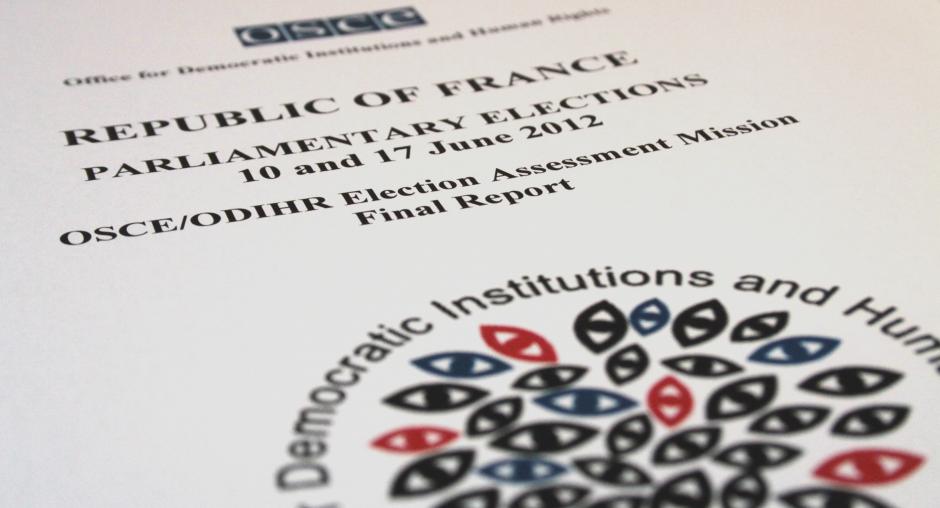OSCE/ODIHR report finds June elections in France offered voters wide choice, recommends improvements to legal framework

France’s parliamentary elections on 10 and 17 June were administered in an efficient and transparent manner and provided voters with a wide choice among diverse political options, concludes the final report by the OSCE Office for Democratic Institutions and Human Rights (ODIHR) released on 10 September 2012.
The legal framework provides a sound basis for the conduct of democratic elections, the report notes, although some of its elements should be improved to bring it fully in line with OSCE commitments and other international standards.
According to the report, the candidate registration process was inclusive, and freedoms of expression and assembly appeared to be respected during the campaign. All political parties were provided with the opportunity to campaign freely in a competitive environment.
The report notes concerns related to secrecy and equality of the vote in relation to proxy voting, which is the only way for eligible voters confined to prisons, hospitals and care homes to cast their ballots.
The legal framework for media coverage of elections guarantees freedom of speech and provides for pluralism across the media landscape, the report states.
While France has a well-developed legal and institutional political finance framework, the report underscores that some provisions for disclosure of donations and expenditures could be further strengthened.
Although the Electoral Code provides many avenues for the resolution of electoral disputes, the report notes that it is not possible for candidates or voters to challenge specific alleged violations until the election is over.
Among the report’s other recommendations is that legal provisions on the use of internet voting by French citizens living abroad be made more detailed to introduce greater transparency into the implementation of internet voting, especially regarding certification and audits.
